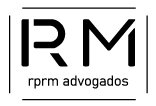Best Bankruptcy Lawyers in Porto
Share your needs with us, get contacted by law firms.
Free. Takes 2 min.
List of the best lawyers in Porto, Portugal
About Bankruptcy Law in Porto, Portugal
Bankruptcy, known locally as "insolvência", is a legal process designed to provide relief to individuals and companies unable to pay their outstanding debts. In Porto, as in the rest of Portugal, the bankruptcy process is governed by national legislation but is often administered in local courts. Bankruptcy law aims to help debtors gain a fresh financial start while also ensuring that creditors recover as much as possible. Whether you are an individual or a business owner, understanding how bankruptcy works in Porto is essential for making informed decisions and protecting your assets and interests.
Why You May Need a Lawyer
Legal expertise is extremely valuable in bankruptcy cases due to the complex nature of the process. Some of the common situations where people in Porto may require a lawyer's assistance include:
- Assessing whether bankruptcy is the best option for resolving debt problems
- Preparing and submitting required documentation to the courts
- Representing your interests in negotiations with creditors
- Explaining how bankruptcy will affect your personal or business assets
- Understanding alternatives to bankruptcy, such as debt restructuring
- Ensuring compliance with all legal obligations and deadlines
- Dealing with disputes or claims raised during insolvency procedures
A lawyer can guide you through the complex steps, advocate on your behalf, and increase the likelihood of a favorable outcome.
Local Laws Overview
Portuguese bankruptcy and insolvency law is primarily regulated by the Insolvency and Corporate Recovery Code (Código da Insolvência e da Recuperação de Empresas, or CIRE). The CIRE governs the different stages of insolvency for both individuals and companies. Key aspects include:
- Filing for Insolvency: Debtors are legally required to file for insolvency within 30 days of becoming unable to pay their debts.
- Judicial Intervention: The process is overseen by local commercial courts, such as those in Porto, which appoint an insolvency administrator to manage the case.
- Asset Liquidation: Assets of the insolvent party may be liquidated to pay creditors, although some property may be protected by law.
- Payment Plans and Recovery: Alternative recovery options, like payment plans, may be available to settle debts and avoid liquidation.
- Legal Consequences: Bankruptcy can impact your credit rating, ability to conduct business, and even your ability to act as a company director.
Having local legal guidance can help you navigate these regulations, meet deadlines, and protect your rights.
Frequently Asked Questions
What is the difference between insolvency and bankruptcy in Portugal?
Insolvency is the overall inability to meet financial obligations, while bankruptcy generally refers to the legal process that follows an official insolvency declaration. Both individuals and companies can be declared insolvent.
Can both individuals and businesses file for bankruptcy in Porto?
Yes. Both individuals and businesses can file for insolvency in Porto. The procedures and implications vary depending on whether you are a private person or a legal entity.
What happens to my assets if I declare bankruptcy?
Generally, your assets may be seized and liquidated by the court-appointed administrator to repay outstanding debts. Certain essential assets may be exempt from liquidation under Portuguese law, especially for individuals.
Will bankruptcy clear all my debts?
Not all debts can be discharged through insolvency proceedings. Some debts, such as child support and certain tax obligations, may remain after bankruptcy.
How long does the bankruptcy process take in Porto?
The length of the process varies depending on the complexity of the case, the amount of debt, and the need to liquidate assets. It may take several months to a few years to complete.
Can I keep my house or car if I file for bankruptcy?
Some personal assets may be protected, but larger assets like homes and vehicles can be subject to liquidation if they are not essential or over a certain value. This will depend on your specific circumstances and local laws.
Are there alternatives to bankruptcy in Porto?
Yes. Debt restructuring agreements and special revitalization processes may allow you to settle debts without going through full bankruptcy. A lawyer can help you determine if these options are available.
How will bankruptcy affect my credit rating?
Bankruptcy will significantly impact your credit rating, making it difficult to secure loans or credit in the future. The effects can last for several years after the case is resolved.
What are my obligations during the bankruptcy process?
You must provide accurate and complete information about your finances, attend hearings and meetings, and comply with all court orders and deadlines. Failure to do so can result in legal penalties.
Do I need to hire a lawyer to file for bankruptcy in Porto?
While it is not mandatory by law to hire a lawyer, professional legal assistance is highly recommended to ensure the process runs smoothly and your rights are protected.
Additional Resources
If you need further information or assistance regarding bankruptcy matters in Porto, consider reaching out to the following resources:
- Tribunal Judicial da Comarca do Porto: The main judicial court managing insolvency cases in Porto.
- Ordem dos Advogados: The Portuguese Bar Association can refer you to qualified bankruptcy lawyers in Porto.
- Centro de Arbitragem de Conflitos de Consumo do Porto: Helps mediate financial disputes and may offer guidance on debt-related conflicts.
- Associação Portuguesa de Direito de Insolvência: A specialized association focusing on insolvency law and resources.
- Deco - Associação Portuguesa para a Defesa do Consumidor: Provides consumer support, including financial and legal guidance.
Next Steps
If you believe you may need bankruptcy assistance in Porto, here are some steps you can take:
- Review your financial situation and gather relevant documents, such as bills and loan agreements.
- Consult with a qualified bankruptcy lawyer based in Porto for a case assessment and legal advice.
- Consider possible alternatives to bankruptcy, such as debt settlement or restructuring.
- Prepare to provide full disclosure of your assets, liabilities, and income during any legal proceedings.
- Contact local courts or legal support organizations if you have questions or need direction.
Taking early action and consulting with an expert can help you better understand your rights and obligations. Do not hesitate to seek help if you are facing serious financial difficulties in Porto.
Lawzana helps you find the best lawyers and law firms in Porto through a curated and pre-screened list of qualified legal professionals. Our platform offers rankings and detailed profiles of attorneys and law firms, allowing you to compare based on practice areas, including Bankruptcy, experience, and client feedback.
Each profile includes a description of the firm's areas of practice, client reviews, team members and partners, year of establishment, spoken languages, office locations, contact information, social media presence, and any published articles or resources. Most firms on our platform speak English and are experienced in both local and international legal matters.
Get a quote from top-rated law firms in Porto, Portugal — quickly, securely, and without unnecessary hassle.
Disclaimer:
The information provided on this page is for general informational purposes only and does not constitute legal advice. While we strive to ensure the accuracy and relevance of the content, legal information may change over time, and interpretations of the law can vary. You should always consult with a qualified legal professional for advice specific to your situation.
We disclaim all liability for actions taken or not taken based on the content of this page. If you believe any information is incorrect or outdated, please contact us, and we will review and update it where appropriate.













